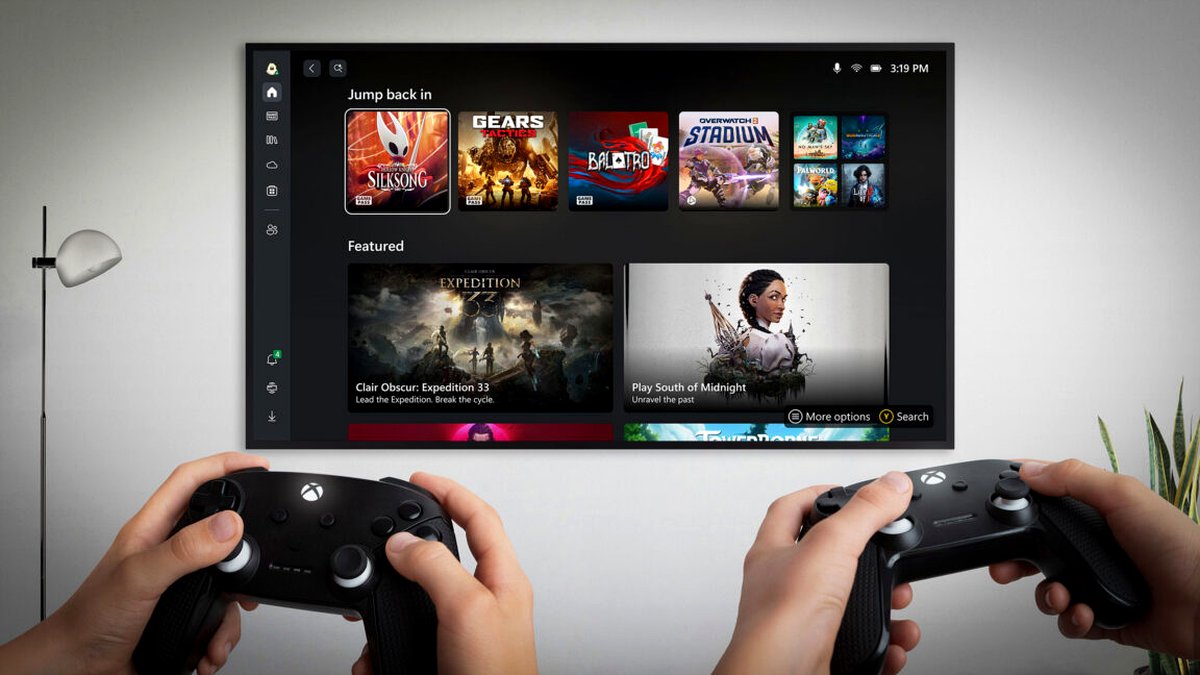The handheld x86 gaming landscape just gained unprecedented clarity with Microsoft's emerging strategy to merge Xbox console gaming with Windows PC architecture, positioning devices like the ROG Xbox Ally as harbingers of a fundamental shift away from traditional console models. Multiple industry sources indicate that Microsoft's next-generation Xbox consoles will run custom Windows 11 installations with Xbox interfaces, essentially transforming them into living room gaming PCs that could revolutionize how we think about handheld gaming ecosystems.
Technical Framework Emerges
Microsoft's strategic pivot centers on leveraging its dominance in PC gaming through Windows while addressing its struggling console hardware sales. The company's multi-year AMD partnership, confirmed by Xbox President Sarah Bond, will deliver custom silicon for what she describes as "next-generation Xbox consoles in your living room and in your hands." This AMD-powered architecture mirrors the x86 foundation already established in handheld gaming PCs like the Steam Deck and ROG Ally series.
The technical implications prove significant for handheld x86 gaming enthusiasts. Microsoft's "Xbox Experience for Handheld" interface, debuting on the ROG Xbox Ally, represents a crucial testing ground for this convergence strategy. CNET's analysis shows that this interface promises to "minimize background activity and defer non-essential tasks" that typically consume RAM and computing resources on full desktop Windows installations.
The convergence eliminates the traditional boundaries between PC and console gaming. A Windows-based Xbox console would provide instant access to tens of thousands of Windows games alongside Xbox's existing library, creating what Ars Technica describes as "an instant leg up on the more limited selection of ports available on competing consoles."
Market Disruption and Handheld Gaming Implications
This strategy positions Microsoft to capitalize on trends already reshaping handheld gaming. Windows-based handhelds currently offer broader game compatibility than SteamOS devices, despite Valve's impressive Proton compatibility layer achievements. Microsoft's console convergence could accelerate this advantage while providing seamless cross-device gaming experiences.
The implications extend beyond individual devices to entire gaming ecosystems. TweakTown reports that Microsoft aims to ensure "Windows is the number one platform for gaming," with Sarah Bond confirming plans for "a gaming platform that's always with you so you can play the games you want across devices anywhere you want."
For handheld x86 gaming specifically, this convergence creates new opportunities and challenges. Companies like ASUS could potentially create "Xbox/PC console hybrids" through hardware licensing arrangements, expanding the handheld gaming PC market while maintaining Xbox ecosystem integration.
Industry Competitive Dynamics
Microsoft's Windows-console convergence addresses several competitive pressures simultaneously. Console hardware sales have struggled against Sony's PlayStation dominance, while PC gaming through Windows remains Microsoft's strength. The convergence strategy leverages existing advantages while potentially disrupting traditional console market dynamics.
The approach contrasts sharply with Nintendo's closed ecosystem and Sony's traditional console model. By essentially turning Xbox consoles into Windows gaming PCs with console interfaces, Microsoft creates a unique value proposition that existing handheld x86 gaming PCs like the Steam Deck cannot fully replicate.
However, the strategy involves significant trade-offs. Microsoft would surrender the 30 percent platform fees from its current walled-garden console marketplace, instead relying on Windows ecosystem dominance and Xbox Game Pass subscriptions for revenue.
Future Handheld Gaming Ecosystem
The convergence signals broader implications for handheld x86 gaming's future. Microsoft's approach could normalize Windows-based gaming devices across form factors, from handhelds to living room consoles. This normalization would benefit the entire handheld x86 gaming ecosystem by driving Windows gaming optimization and expanding developer support.
The ROG Xbox Ally serves as a crucial proof-of-concept for this vision. Its success could determine whether Microsoft fully commits to Windows-based console gaming or maintains separate console and PC strategies. Early reception and performance metrics will likely influence Microsoft's broader hardware and software strategy decisions.
Cross-device compatibility represents perhaps the most significant advantage for handheld gaming enthusiasts. A unified Windows gaming platform would enable seamless game progression across handheld devices, living room consoles, and traditional PCs without requiring developer porting efforts.
Conclusion
Microsoft's Xbox-Windows convergence strategy represents more than incremental evolution—it signals a fundamental reimagining of gaming platform boundaries that could reshape the entire handheld x86 gaming landscape. The success of devices like the ROG Xbox Ally will determine whether this convergence becomes industry standard or remains a Microsoft-specific experiment.
For handheld gaming PC enthusiasts, this convergence offers both opportunity and uncertainty. Broader Windows gaming optimization and expanded ecosystem support could benefit all x86 handheld devices. However, Microsoft's platform control and potential hardware partnerships could also concentrate market power in ways that limit innovation and choice.
The next 12-18 months will prove crucial as Microsoft's strategy unfolds through real-world device launches and market reception. The handheld x86 gaming community stands at the threshold of potentially transformative changes that could define the next generation of portable gaming experiences.
Sources
- Ars Technica: "Why Microsoft's next Xbox should just run Windows already by Kyle Orland"
- CNET: "The Xbox Ally's Biggest Specs Upgrade Could Just Be Better Windows 11 for Handhelds by Antonio Villas-Boas"
Note: All sources have been verified for accuracy and editorial standards compliance.
